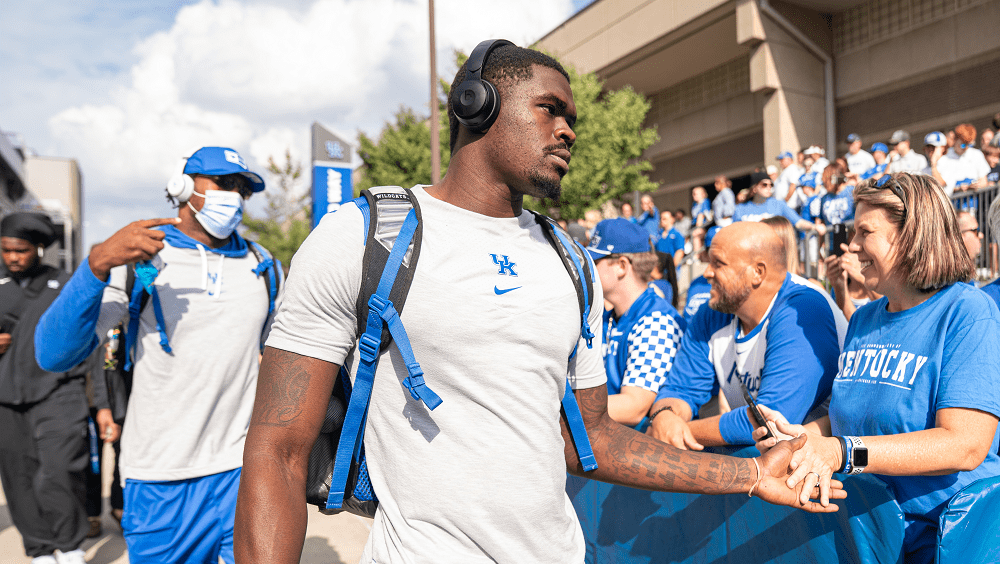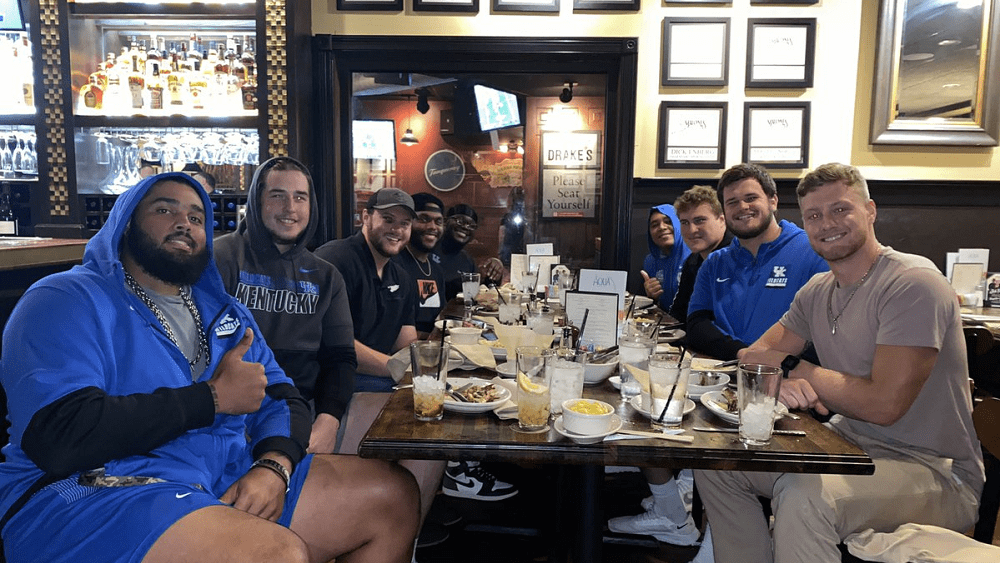
Lee Kiefer with her husband at the Tokyo Olympics where both won medals.
What do you do with an Olympic gold medal? If you are Lexington’s Lee Kiefer, you figure out a way to share the medal with others.
“We have a few upcoming trips planned visiting my husband’s family and my sister,” said Kiefer, a fencing gold medalist in Tokyo. “I will just carry it around and share it.”
Not only does Kiefer have a gold medal, but her husband, Gerek Meinhardt, won a bronze medal in the team foil. He also won a medal at the 2016 Olympics. Kiefer did have one surprise after she won her first Olympic medal.
“I had interviews after I won and was just holding the medal in my hand instead of wearing it around my neck because it is so heavy,” she said.
It was a historic win for a 27-year-old athlete who has made a lot of history in her sport. The United States had never had an athlete win an Olympic medal in women’s individual foil and Kiefer took the gold by beating Russian rival Inna Deriglazova 15-13.
In March 2017 she became the first U.S. female foil fencer to be ranked No. 1 in the world by the International Federation d’Escrime (FIE). In 2018 she became the first fencer to win nine individual Pan American championship titles. At the 2019 Pan Am Games she became the first fencer to win three consecutive individual titles in any weapon.
Yet the Olympics are different and even four weeks later she is adjusted to hearing “Olympic gold medalist” attached to her name.
“It is still surreal. We have our medals at home and it is like, ‘Where did they come from.’ That was like a lifetime ago,” she said.
Family, friends and members of the Bluegrass Fencer’s Club greeted Kiefer and her husband at Bluegrass Airport and the Olympic medalists were glad to see them.
“We wanted to share with everyone that was part of the journey,” she said. “No one was more excited and proud than my dad. We wanted to let everyone touch the gold medal.”
Her father, Dr. Steve Kiefer, captained the fencing team at Duke and introduced his three children to the sport at an early age. All three became successful collegiate fencers but Lee went to the elite level. She had competed in two previous Olympics before winning gold. However, due to the pandemic her father and other family members were not allowed to attend.
“We thought a year and a half ago the Olympics might cancel and then it got postponed which was better. Then about three months before the Games we found out there would be no spectators,” she said. “That was really hard on us. One thing I enjoy is sharing that experience with the people who supported us along the way and it means as much to them as us. We had to cope with that and it was kind of weird without them there.”
However, smaller than normal Olympic crowds might have helped her.
“Fencing is not the most popular women’s sport,” she said. “You go to competitions we have and there are not that many spectators. I was fencing on the biggest stage of my life and I could hear my husband, coach, and friends. It actually felt more normal than Rio or London (sites of her two previous Olympics). In some ways it was sad (having no spectators) but in other ways I was able to focus better.”
* * *
On Saturday: How hard was it for a gold medalist to watch her husband compete the next day after her win and what does she hope their success might do for fencing in Kentucky.






